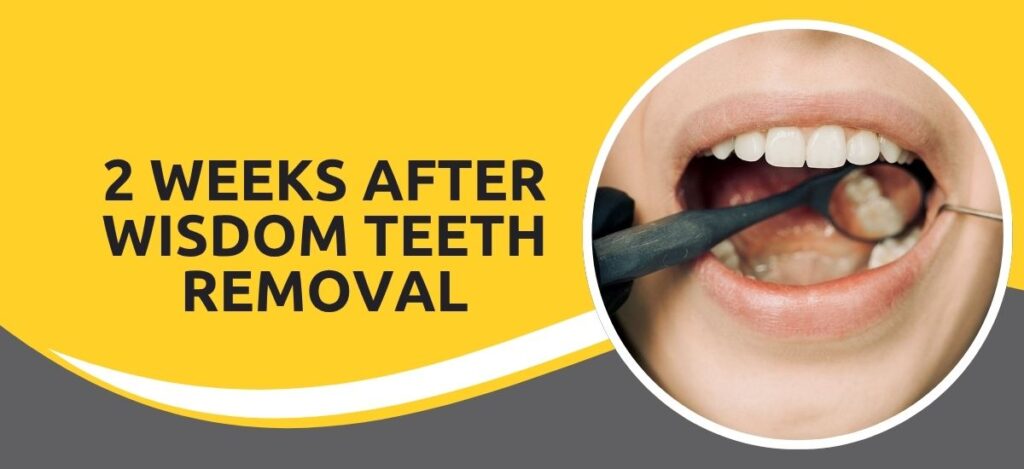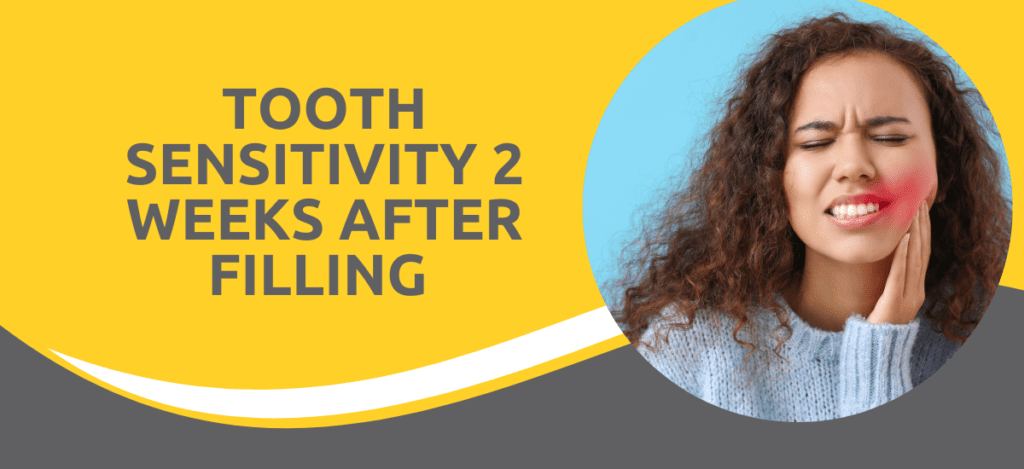Wisdom teeth removal is a common dental procedure. According to global dental studies, over 10 million wisdom tooth extractions are carried out every year, and nearly 85% of adults will need at least one wisdom tooth removed in their lifetime. Recovery can often bring confusion — especially around the two-week mark. By this time, most people expect to feel “back to normal,” yet lingering discomfort or swelling can still occur.
Dr. Dheeraj Punjabi, Founder of Dental Krafts Dental Clinic in Govandi, Mumbai, says, “Two weeks after wisdom teeth removal, your body is still in the final stages of healing. Even if the pain subsides, tissues and nerves are actively regenerating. Understanding these subtle changes can help patients avoid unnecessary panic and promote a smoother recovery.”

In this blog, we’ll break down what happens 2 weeks after wisdom teeth removal, why some discomfort persists, and what you can do to support healing.
Let’s start by decoding what you can typically expect at this point in your recovery journey.
What to Expect 2 Weeks After Wisdom Teeth Removal

By the time you hit the two-week milestone, your extraction sites should be largely healed on the surface. However, deeper tissues and nerves may still be sensitive. You might notice:
- Mild tenderness around the extraction site
- Slight stiffness when opening your mouth fully
- Minimal swelling, especially after long conversations or chewing
In most cases, these are normal parts of wisdom teeth removal recovery. The body continues to remodel soft tissues, strengthen the gum surface, and re-establish normal blood flow.
Dr. Poonam Punjabi, an acclaimed dentist in Govandi, shares, “At two weeks post-extraction, most patients see remarkable improvement. However, those who experienced complex extractions or mild infections may need additional care. It’s crucial to maintain gentle oral hygiene to prevent secondary complications.”
Common Causes of Discomfort 2 Weeks After Wisdom Teeth Removal
It’s natural to feel some residual discomfort even after two weeks, here’s a closer look at potential causes:
1. Minor Infection:
If bacteria enter the healing socket, you may experience a dull ache, mild swelling, or a bad taste. This can delay healing but is easily treatable with early intervention.
2. Dry Socket:
A dry socket is among the most frequent complications after oral surgery. It happens when the healing blood clot comes loose too soon, leaving the underlying bone exposed. This often leads to sharp, radiating pain that may extend toward the ear or along the jawline.

3. Food Debris or Poor Cleaning:
Trapped food particles can irritate the gums or create mild inflammation. Rinsing gently with warm saline water helps reduce bacterial buildup.
4. Overexertion:
Resuming intense workouts or chewing hard foods too soon can aggravate the area, leading to pain 2 weeks after wisdom teeth extraction.
Experiencing persistent discomfort after oral surgery? Seek professional help from a qualified dental expert for evaluation and proper recovery guidance.
Wondering what’s really happening inside your mouth during this stage? Let’s look at the healing process itself.
2 Weeks After Wisdom Teeth Removal – The Recovery Process
By this point, the majority of visible healing is complete — but the deeper recovery continues beneath the surface. Here’s what’s unfolding biologically:
Gum Healing: The gum tissue closes over the socket, creating a protective barrier.
Bone Regeneration: The jawbone starts filling in the empty socket with new bone tissue.
Nerve Recovery: Tingling or slight numbness may persist as nerve endings regenerate.
During this phase, swelling should have significantly reduced, and normal eating habits are gradually returning. However, if swelling after wisdom teeth removal 2 weeks remains pronounced, it could signal underlying inflammation.
Dr. Dheeraj Punjabi, an experienced dental expert in Mumbai, explains:
“Patients often underestimate the internal healing process. Even when everything seems fine externally, bone and tissue structures are still reorganizing. Patience, proper oral hygiene, and follow-up care are key to a complete recovery.”
So, how can you actively support this process and minimize any lingering pain or swelling? Let’s explore solutions…
Managing Pain and Swelling 2 Weeks After Wisdom Teeth Removal

At the two-week mark, most people experience mild sensitivity rather than acute pain. Still, for those facing residual swelling or discomfort, the following steps can help:
- Warm Compresses:
Applying a warm (not hot) compress boosts blood circulation and helps ease jaw stiffness.
- Saltwater Rinses:
Gently rinsing your mouth with warm saltwater twice a day helps cleanse the area, reduce bacteria, and soothe sore gums.
- Soft Diet:
Continue eating soft, non-spicy foods like mashed vegetables, soups, and yogurt. Avoid hard or sticky items that can disturb the healing area.
- Hydration and Rest:
Adequate water intake promotes faster tissue recovery, while sufficient rest helps the immune system function optimally.
- Follow-Up Visits:
Regular check-ins with your dentist ensure your healing is on track and identify any complications early.
Dr. Poonam Punjabi, a compassionate dentist in Govandi, adds:
“Consistent follow-up appointments make a huge difference. They help track tissue regeneration and provide reassurance that healing is progressing as expected. Don’t skip them, even if you feel better.”
But what if the pain or swelling doesn’t seem to fade? When should you be concerned?
Signs You Should Consult Your Dentist Post-Extraction

While mild soreness is normal, certain symptoms should never be ignored:
- Persistent or increasing pain after two weeks
- Redness, pus, or foul odor around the extraction site
- Difficulty swallowing or opening the mouth
- Numbness that doesn’t subside
- Noticeable swelling or fever
If any of these appear, immediate evaluation is necessary. Ignoring them can lead to complications like infection or delayed bone healing.
Noticing unusual symptoms after oral surgery? Schedule a check-up with a dental professional for timely assessment and peace of mind.
Before we wrap up, let’s understand why patience and proper care matter most.
Conclusion
Healing two weeks after wisdom teeth removal is a delicate balance of patience and attentive care. While mild discomfort or swelling is normal, being proactive about oral hygiene and diet helps speed recovery. The body’s ability to heal itself is remarkable — all it needs is time, cleanliness, and gentle support.
Dr. Dheeraj Punjabi, a trusted dental surgeon in Mumbai, reminds us:
“Recovery after wisdom tooth extraction is like mending a small bridge — it takes time for all components to stabilize. Patients who follow care instructions diligently often experience smoother, complication-free healing.”
Still have questions about what’s normal or not during this stage? The FAQs below will help clarify the most common concerns.
Frequently Asked Questions:
- Is it normal to have pain 2 weeks after wisdom teeth extraction?
Yes, mild pain or sensitivity can persist due to ongoing tissue and nerve recovery. However, if pain intensifies or is accompanied by swelling or discharge, consult your dentist immediately.
- Can I resume normal exercise routines after 2 weeks?
Light activities are usually fine after 10–14 days, but avoid high-impact workouts that strain the jaw or increase blood pressure near the healing site.
- Why is there swelling after wisdom teeth removal 2 weeks later?
Minor swelling may remain as deep tissues heal. Persistent or enlarging swelling, however, might indicate infection and needs evaluation.
- How long does wisdom teeth removal recovery truly take?
Surface healing occurs in 1–2 weeks, but complete bone and nerve restoration can take 6–8 weeks depending on the complexity of extraction.
- Can I eat spicy food 2 weeks after wisdom teeth removal?
It’s best to wait another week. Spicy or acidic foods may irritate the gums and delay recovery. Stick to mild, soft foods until sensitivity fully subsides.
Concerned about your post-extraction recovery? Reach out to a dental professional for expert advice tailored to your healing needs.
References:
https://www.mayoclinic.org/tests-procedures/wisdom-tooth-extraction/about/pac-20395268
https://my.clevelandclinic.org/health/treatments/22119-wisdom-teeth-removal
Disclaimer: The information shared in this content is for educational purposes only and not for promotional use.



